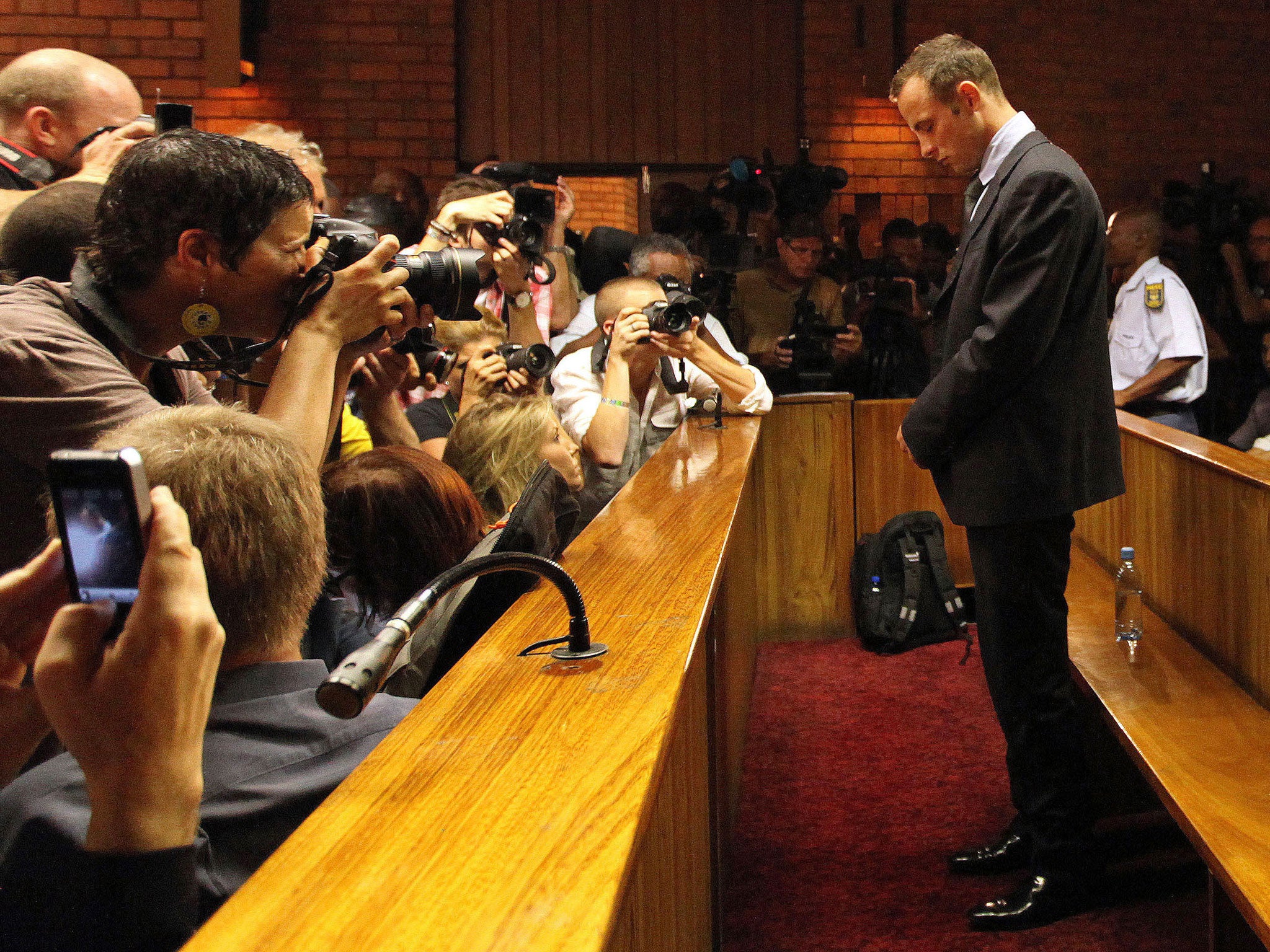Oscar Pistorius murder trial: Documentary set to undermine evidence on row on night Reeva Steenkamp was killed
Barristers will pick over the evidence against the athlete accused of murdering Reeva Steenkamp

Your support helps us to tell the story
From reproductive rights to climate change to Big Tech, The Independent is on the ground when the story is developing. Whether it's investigating the financials of Elon Musk's pro-Trump PAC or producing our latest documentary, 'The A Word', which shines a light on the American women fighting for reproductive rights, we know how important it is to parse out the facts from the messaging.
At such a critical moment in US history, we need reporters on the ground. Your donation allows us to keep sending journalists to speak to both sides of the story.
The Independent is trusted by Americans across the entire political spectrum. And unlike many other quality news outlets, we choose not to lock Americans out of our reporting and analysis with paywalls. We believe quality journalism should be available to everyone, paid for by those who can afford it.
Your support makes all the difference.Evidence that neighbours of Oscar Pistorius heard him arguing with his girlfriend, Reeva Steenkamp, just hours before he shot and killed her is undermined in a documentary to be broadcast tomorrow night.
In the second of two Channel 5 documentaries to be aired tomorrow, a day before Pistorius appears in the dock for a pre-trial hearing on Tuesday, two of South Africa's top barristers use experts and a full-size reconstruction of Pistorius's bathroom and bedroom to dissect the evidence on which his fate hangs, dismissing claims that neighbours heard the couple rowing.
Immediately before that, in Why Did Oscar Pistorius Kill Our Daughter?, Ms Steenkamp's parents say that their daughter told them the couple were arguing, and explain why they feared for her safety. For the first time they will also show her painting of a gunman, an angel and a stairway to heaven – images that they claim were a "premonition".
Pistorius, who is currently on 1m Rand bail (£65,000), became the first double-amputee track athlete to compete in the Olympics when he raced in London last year. He killed Ms Steenkamp, a model, in the early hours of Valentine's Day at his Pretoria home.
He says he mistook her for an intruder and shot her four times, hitting her in the head and arm, while she was in the bathroom. Prosecutors say the killing was premeditated. If found guilty, the one-time Paralympic poster-boy would receive a very lengthy jail sentence.
The prosecution must provide a motive to have him convicted of premeditated murder, and part of that case relies on two witness statements saying the couple were arguing. But, in Pistorius Trial: The Key Questions, on Monday at 10pm, those statements from neighbours living 300 metres from the athlete's home, are called into question. Technology used to measure the noise impact of new train lines suggests that voices arguing could not be heard from 300 metres away, but only from a distance of about 50 metres.
Two barristers, Estelle Kilian acting for the prosecution and Marius Du Toit for the defence, agree this witness evidence is likely to be undermined. But, the documentary says, unsubstantiated claims that the pair had sent texts to others could still provide a motive.
It has been alleged that Pistorius sent texts to another woman of a "flirtatious nature" after he had begun his four-month relationship with Ms Steenkamp, which might provide a motive, while Ms Steenkamp, 29, is said to have been trading messages with a previous boyfriend. Why she took her mobile phone to the bathroom – where it was found by police – in the middle of the night is also under scrutiny.
The documentary also asks whether it is plausible that Pistorius, 26, didn't notice Reeva was not in bed before he started shooting. An illumination engineer backs Pistorius's claims that it was "pitch black" and he could not see that Ms Steenkamp was not in bed as he manoeuvred around the bed to get his 9mm pistol and confront the supposed burglar.
But Laurie Peters, a criminologist, says the fact that he didn't check whether Reeva, whom he shot four times while she was in the bathroom, was in bed or not was illuminating. She says: "He didn't even bother to find out where Reeva was before he fired blindly into the dark. That would be a red flag to me because psychologically the first thing you would do is find the people you want to protect."
Join our commenting forum
Join thought-provoking conversations, follow other Independent readers and see their replies
Comments